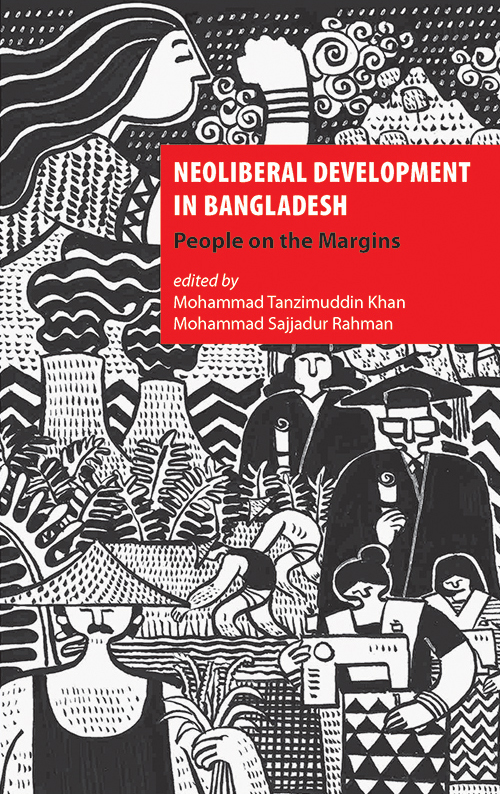- Shop
- Neoliberal Development In Bangladesh
Neoliberal Development In Bangladesh
People on the Margins
https://uplbooks.com/shop/neoliberal-development-in-bangladesh-8395 https://uplbooks.com/web/image/product.template/8395/image_1920?unique=3d813f3
| Language: English |
Tags :
Book Info
Neoliberal development, the contemporary paradigm of capitalist progress, has been used as a legitimizing ideological tool for the state since the 1980s. This paradigm with its exclusive focus on free market, free trade, 'efficient' allocation of resources and 'de-territorialization' of economic growth has transformed the very nature of the state. The shift from 'welfarism' to 'marketization/ commoditization has permitted the global emergence of a market-society wherein the logic of profit and competition determines economic prosperity. For the neoliberal states, market is both the ends and means of social wellbeing. Transnational corporations, international financial institutes and their development discourses are pivotal in globalizing this neoliberal approach. This market-society paradigm is, however, encountering many challenges and alternative visions are coming up from the very people who are suffering. Bangladesh's experience regarding neoliberal development is quite interesting in the sense that the country has already been recognized as a 'development paradox'. The proposed book is therefore extremely important not only because it explores the sector-wise experiences but also delves into the resistance movements demanding alternative future. The book proposes to have thirteen chapters in total. The first section will introduce chapters that discuss theoretical issues and an overview of Bangladesh's neoliberal policies. Essays in the second section will critically narrate the consequences of neoliberal approaches in different sectors like energy, education, health etc. The final section documents a number of movements that have taken place in different parts of Bangladesh. Although the targeted audience of the book is primarily academics and students of political economy, this book will also be useful for NGO activists, development practitioners, journalists and environmentalists.

Mohammad Tanzimuddin Khan
Mohammad Tanzimuddin Khan, Ph.D is Associate Professor at the Department of International Relations, University of Dhaka. His research publications have appeared in peer reviewed national and international journals and edited volumes. Mr. Khan was awarded Chevening and UNE Strategic Scholarships for doing his MA and Ph.D degrees and, UNESCO/Keizo Obuchi Fellowship (2008-2009). His teaching and research interests include international political economy, political ecology, and development, democracy & governance.

Mohammad Sajjadur Rahman
Mohammad Sajjadur Rahman is a doctoral student at the Strassler Center for Holocaust and Genocide Studies, Clark University.



